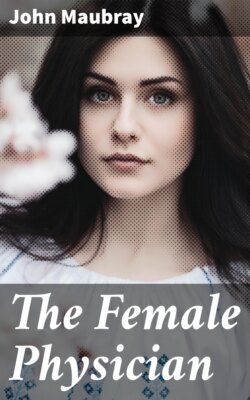Читать книгу The Female Physician - John Maubray - Страница 9
На сайте Литреса книга снята с продажи.
ОглавлениеCHAP. II. Of NATURE.
Table of Contents
HOWEVER extensive this Word Nature may be, and whatever secundary Definitions it may admit of; it is (in effect) nothing else than the Denouncer of the Divine Will and Pleasure, the Efficient Cause of natural Works, and the Conservant of real Existences: Or, the Order and Series of Sacred Works, obeying the Divine Will, Power, and Commands. At least I think all other Definitions of this Word, taken in whatsoever Sense, may be reduced to These following; viz.
NATURE is the implanted and innate Quality of Things.
NATURE is the Faculty and Propensity of every Mind.
NATURE is the Mixture and Temperature of the four Elements.
NATURE is the Philosopher’s Axiom of Motion and Rest.
NATURE is that which giveth Form, by a specifick Difference, to every thing.
WHICH Power (in either Definition) can only be ascribed to that Great God, whose infinite Existence I’ve been hinting upon: Who is the Author of Nature and Framer of the Universe; who by his own Breath and Word, without any material Help, and at his own Will and Pleasure, created all Things. In whom all Things live, move, and have their Being. By whom a vivacious Faculty is infused through all Things; so as that (by and through Him) all Things subsist of their own peculiar Natures and natural Qualities; and by these implanted Qualities increase, maintain, and defend themselves: And that so, that in such an immense University, and such a vast Variety of Things, nothing is indeed idle, useless, or unprofitable. Nothing is made rashly, fortuitously, or in vain; but every Thing appears appointed to some certain Use and Purpose, and determined to some settled Course and Sphere of Action: Every Being answering the End of its Design, and the Design of its Creation.
AS Man was set on the Theatre of this World, to the End that he might admire, delight, and confide in God his great Creator; so was the Humane Body made for the Divine Soul, and the respective Members for the Body: which all voluntarily concur in the Discharge of their peculiar Functions, for the Benefit and Use of the Whole.
AND so was every Stem endued with its own Faculty, and every Creature with its own Nature; which made Aristotle[1] most pertinently say, “That there’s nothing so minute in the Nature of Things, nothing so abject or despicable, but may reasonably afford Men something of Admiration.”
NOW, I think, we may be soon brought to this Admiration, when we only view those Things which are so evidently exposed to our Eyes: such as the Elements, the Heavens, the Rising and Setting of the Sun, Moon, and Stars, the Diurnal and Nocturnal Vicissitudes, the four Seasons of the Year, comprehending the two Æquinoctials of Spring and Fall, and the two Solstices of Summer and Winter; by whose Decourse or Descent Grass fades, and Herbs decay; and again, by their Ascent or Influence, spring up and revive.
AND again, when we consider the Animals, the Faculties and Propension of their respective Natures, how they are endued with peculiar Sense, because denied particular Reason; and how wisely they are all dispos’d, some inhabiting the Waters, some enjoying the free Air, and others possessing the Desarts; some reptile and creeping, some gradient and walking, some solivagant and wandering, some wild and fierce, and others innocent and tame: I say the marvellous and inimitable Artifice of Nature in these, and all other natural Works, is not only to be admir’d; but also the Majesty, Glory, Fullness, and Magnificence of the Great Creator and Institutor of this Nature is to be most highly ador’d; in whom all things originally center, as their common Source and Divine Fountain, and to whom all things are finally reduced, as the Primigenious Essence and Archetype of Nature.
